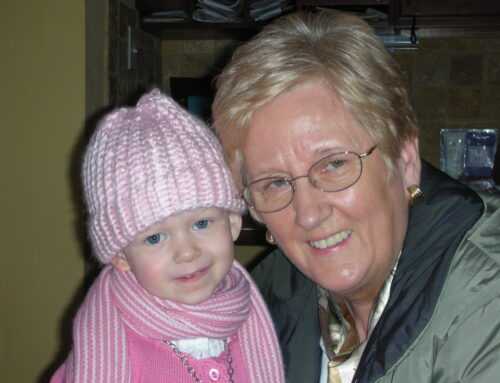11 things raising a terminally-ill child taught me about parenting
Written by Erin Santos, Originally published on village (2013)
 When someone tells you that your child will not survive a terminal disease, you quickly begin to look at raising her in a whole new way. I lost my 7-year-old daughter Isabella to the rare pediatric cancer neuroblastoma in 2012. Here’s what I learned from raising my terminally-ill child—and how it’s helping me parent Isabella’s two younger siblings.
When someone tells you that your child will not survive a terminal disease, you quickly begin to look at raising her in a whole new way. I lost my 7-year-old daughter Isabella to the rare pediatric cancer neuroblastoma in 2012. Here’s what I learned from raising my terminally-ill child—and how it’s helping me parent Isabella’s two younger siblings.
1. Be in the picture.When you know have a limited amount of time with your child, capturing moments is critical and you make sure that you’re not the only one snapping photos. The years go by quickly for healthy kids, too—don’t spend them hiding behind the camera.
2. Just let it go.So she wants to wear her best party dress to school or even dye her hair red. When your child is sick, these types of battles often don’t phase you. Yes, you need rules and expectation for your child, but some of these less important things can roll off your back if you’ll let them.
3. Doctors don’t know everything. We put a lot of faith in the medical community to have all the answers. And doctors are forever cautioning parents to avoid doing their own research on the internet—but you can and you should. You are smart enough to sift through what’s reliable and what’s not to get more information and possibly even find a new treatment or trial that might help. Trust that you are the best advocate for your child.
4.You can’t do it without help. Raising a terminally ill child is a full-time job, and the only way you get through it is allowing people to help you—whether it’s picking up groceries, mowing your lawn or ferrying your other kids from school. But all parents need a hand—don’t wait until you’re in a crisis to accept it.
5. Death is real and final. When you know your child is going to die, you really think you know what that means. But even as you’re going through the last stages of death, it’s hard to really grasp what’s going on. Losing your child forces you to face the issue. Everyone has to deal with death at some point—it’s important to find ways for your family to talk about it.
6. You can have more good times than bad. At times it can be hard to carry on when you know how the story ends. But with some effort, you can create amazing memories so that you laugh more than you cry. Take your kids to Disney World, have cake for lunch, play hooky from school to get a manicure. It doesn’t have to be all bad all the time—you can tip the scale in the right direction.
7. You’re stronger than you know. When your child is sick, you’ll do whatever it takes to help—changing wound dressings or organizing fundraisers to raise awareness for your cause. You tap unknown resources of strength and courage. Whatever obstacles you or your child face, don’t let anyone push you around.
8. Everyone has an opinion. If you chose to share your story with the community, your life will be under a microscope. People will question every step you take, every trial you enroll in and have no problem telling you what they think. “Have you looked into this hospital or this drug?” Everyone will always have an opinion on the choices you make and you quickly learn to ignore anything that’s just not helpful.
9. Take advantage of quality time. When you spend hours upon hours of hospital time in treatment rooms, overnight stays, emergency rooms and waiting rooms, you eventually learn to put down your phone or computer to try to be in the moment as much as you can. Time together with your kids can be meaningful and beautiful if you give it the attention it deserves.
10. You’ll be jealous of others. There are days when it’s impossible to watch families with healthy kids. Listening to a friend complain about their child’s ear infection will drive you mad. But jealously affects everyone and it’s important to try to move past it—or at least learn to live with it.
11. You WILL have regrets. No matter how hard you work, what drugs you try or where you take your child for treatment, things will eventually catch up to you. You will beat yourself up on which fork in the road you took that caused the ending, but in fact their time just ran out. Whatever difficult situation your child faces, try to limit your regrets and be confident in the decisions you make. You’ve done the best for your child that you can.
Erin Santos is a freelance writer, blogger and president of the Isabella Santos Foundation (ISF), a nonprofit organization dedicated to raising funds for neuroblastoma and other pediatric cancers. Erin and her husband founded ISF when their two-year-old daughter, Isabella, was diagnosed with neuroblastoma. Though Isabella passed away in 2012, the foundation continues its mission in hopes of saving other children. Follow ISF on Twitter and Facebook.
A version of this story originally appeared on iVillage.




